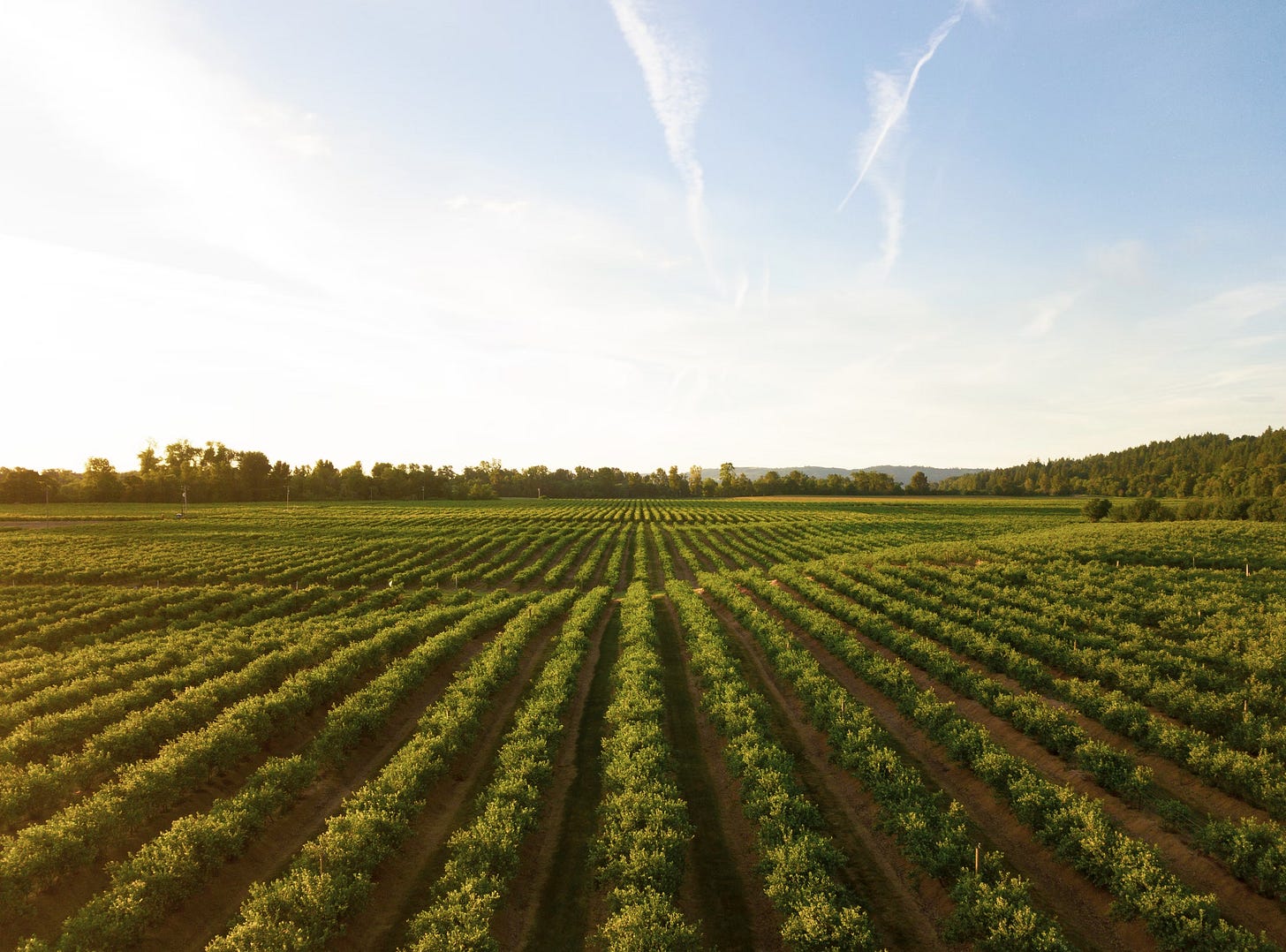Is CO2 plant food? Why are we still talking about this?
the climate-denier zombie argument that, unlike plants, won't die
Recent interviews with Trump administration officials have revived a persistent myth in climate change discussions: “CO2 is plant food”. This is one of those zombie climate-denial arguments that just never goes away because 1) it’s a simple argument and 2) it seems intuitive — after all, plants need carbon dioxide, so more of it must be good, right?
Yes, CO2 enhances photosynthesis. But crops don’t grow in a vacuum, they also need water, temperatures in a particular range, and farmers need predictable seasons. Climate change disrupts all of those.
The Earth is greening, but only partially due to enhanced CO2. The observed greening in India and China, for example, are mainly due to aggressive reforestation programs, farm subsidies, and irrigation projects designed to sustain high agricultural output — not rising CO2 levels.
If climate change aids agriculture anywhere, it’s at high latitudes, where it benefits few people. Meanwhile, the world’s major breadbaskets — places like the U.S. Midwest, India, and parts of Africa — are seeing more frequent heat waves, floods, and droughts. The reality is that climate change makes agriculture more difficult almost everywhere.
The “CO2 is plant food” myth survives because it’s a convenient lie, not because it’s true.
Here are some peer-reviewed articles on this nuanced question:
Anthropogenic climate change has slowed global agricultural productivity growth
Climate change has likely already affected global food production
New science of climate change impacts on agriculture implies higher social cost of carbon
I posted this about “CO2 is plant food” in June of 2023. That was right after we started the blog, so a lot of you didn’t see it. So here it is again:
I read on Twitter that “CO2 is plant food.” That didn’t seem right, so I asked David Lobell, one of the world’s experts on climate change and agriculture. He’s a professor at Stanford, a MacArthur genius grant recipient, a member of the National Academy of Sciences, and an all-around good guy.
Here’s what he said:
The bottom line:
Me: So are you worried about the climate impacts on agriculture?
David Lobell: Yes. I think the evidence is very clear that, on net, the changes going on in the atmosphere, including all the climate changes, are a risk to a lot of major production systems and to a lot of food insecure areas. So there's definitely a reason that we that we continue to work on how to adapt to these changes.
So next time someone says “CO2 is plant food,” please send them this post.
Unrelated but interesting stuff
Systemic risk and the polycrisis: This is a really good post from Florian U. Jehn’s Existential Crunch substack about how individual problems, each one of which looks manageable, can combine in ways that create unsolvable systemic collapse. Worth reading.
America’s most useless crop: This is a really good post from Tanner Janesky’s Energy Resource Dynamics substack about lawns. I hate hate hate the amount of $$$ and time my lawn takes. This post distills all of the reasons why lawns are terrible. I’d love to get rid of it, but my HOA of course won’t allow it. Grrrrrrrrrr.



Here's a long Bluesky thread on this subject: https://bsky.app/profile/paulmac.bsky.social/post/3leg7fhrqjs2e
That sums it up pretty well. CO2 is only one factor for plant growth. CO2 concentration vs rate of photosynthesis is also asymptotic, where increasing CO2 has diminishing returns for plant growth. C4 photosynthesis plants are already very efficient at using CO2, so they won't increase their photosynthetic rate with higher CO2 concentrations barely at all (as David mentioned.)
In animal respiration, a reciprocal process to photosynthesis, higher oxygen concentrations don't necessarily make humans grow better. High oxygen concentration can even be harmful.
Plants and animals are both well-adapted to current conditions, and when those conditions change too fast, things can get weird.
Great reminder!